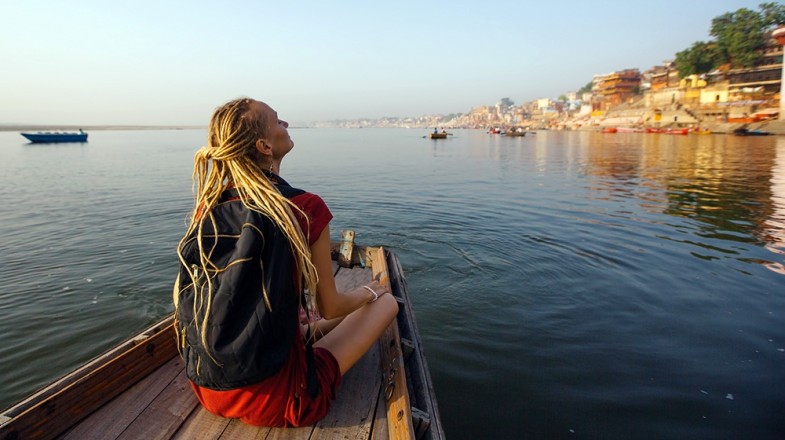India is a vibrant and diverse country, offering a rich cultural experience. Whether you’re visiting for business, leisure, or to reconnect with family, traveling to India as an NRI (Non-Resident Indian) requires careful planning. Here are some essential tips to ensure a smooth and enjoyable trip.
1. Check Your Passport and Visa Validity
Ensure that your passport is valid for at least six months from your planned date of arrival in India. Additionally, verify the status of your visa. India offers various types of visas such as tourist, business, and medical visas, so ensure you have the correct one for your visit.
2. Stay Updated on Travel Restrictions
Before you travel, check the latest travel advisories and entry requirements. India’s regulations regarding COVID-19 or other health-related protocols may change, so it’s crucial to stay informed about any quarantine rules, vaccination requirements, or health screenings that may be in place.
3. Plan Your Finances
Consider your banking and currency needs. Many banks in India now offer services to NRIs, but it’s a good idea to bring some Indian currency (INR) for immediate expenses like taxis or shopping at local markets. You can also inform your bank about your travel plans to avoid any issues with using international credit/debit cards in India.
4. Get Health Insurance Coverage
Health insurance is essential when traveling abroad. Check if your current insurance covers you internationally. If not, purchase travel insurance that includes medical coverage while you’re in India. The healthcare system in major cities is excellent, but it’s better to be prepared for any emergencies.
5. Keep Emergency Contacts Handy
Make sure you have a list of emergency contacts, including the nearest Indian embassy, local hospitals, and your family or friends’ contact details. It’s also good to keep the phone numbers of local police and fire departments in case of any emergencies.
6. Notify Your Family in India
If you’re visiting family, it’s a good idea to keep them updated on your travel plans and expected arrival times. They can also help you with travel arrangements, such as transportation or accommodation, and assist in emergencies.
7. Pack Wisely
Depending on the region and season, India’s weather can vary greatly. Be sure to pack accordingly—light clothing for the hot summers or warmer layers for the cooler northern regions in winter. Also, keep medications and personal items in your carry-on bag, as these may not always be readily available in small towns.
8. Stay Connected
Check with your mobile service provider for international roaming charges or consider purchasing a local SIM card upon arrival. India has excellent connectivity, and getting a local SIM can save you on roaming fees.
9. Familiarize Yourself with Local Culture and Customs
India is a culturally rich country with diverse traditions and customs. Take time to learn about the local etiquette and customs of the places you’ll be visiting. This includes greeting people with a “Namaste,” respecting religious sites, and being mindful of the dress code in certain areas.
10. Safety and Security Tips
While India is generally safe for travelers, taking basic precautions is always recommended. Avoid traveling alone late at night, keep an eye on your belongings, and be cautious when using public transport. Stick to well-known areas and avoid poorly lit or isolated places.
11. Stay Updated on the Political Situation
While India is a stable democracy, it’s still a good idea to stay updated on any political unrest or protests that may impact your travel. Stay informed through the news or local sources and avoid areas where large gatherings are taking place.
12. Prepare for the Weather
India’s climate can vary dramatically. If you’re traveling during the monsoon season (June to September), be prepared for heavy rains, particularly in the coastal and southern regions. If you’re visiting during summer, temperatures can soar, so stay hydrated and protect yourself from the sun.
13. Keep Copies of Important Documents
Always keep photocopies of important documents like your passport, visa, flight tickets, and insurance details. It’s advisable to store them in both digital form and hard copies in separate places, in case of loss or theft.
14. Know the Local Languages
While English is widely spoken in major cities and tourist destinations, India has a rich linguistic diversity. Learning a few common phrases in Hindi, Tamil, Bengali, or the regional language of the area you’ll be visiting can enhance your travel experience.
15. Plan Your Local Transportation
India offers various modes of transport, such as trains, buses, taxis, and auto-rickshaws. Make sure you know the safest and most efficient ways to get around in the cities you’ll be visiting. For long-distance travel, booking train tickets in advance is advisable, especially for popular routes.
Conclusion
Traveling to India as an NRI can be a wonderful and enriching experience. By taking these simple steps to plan ahead, you can ensure that your journey is stress-free and filled with memorable moments. Whether it’s your first trip or you’re a seasoned traveler, these tips will help you make the most out of your visit to India.

